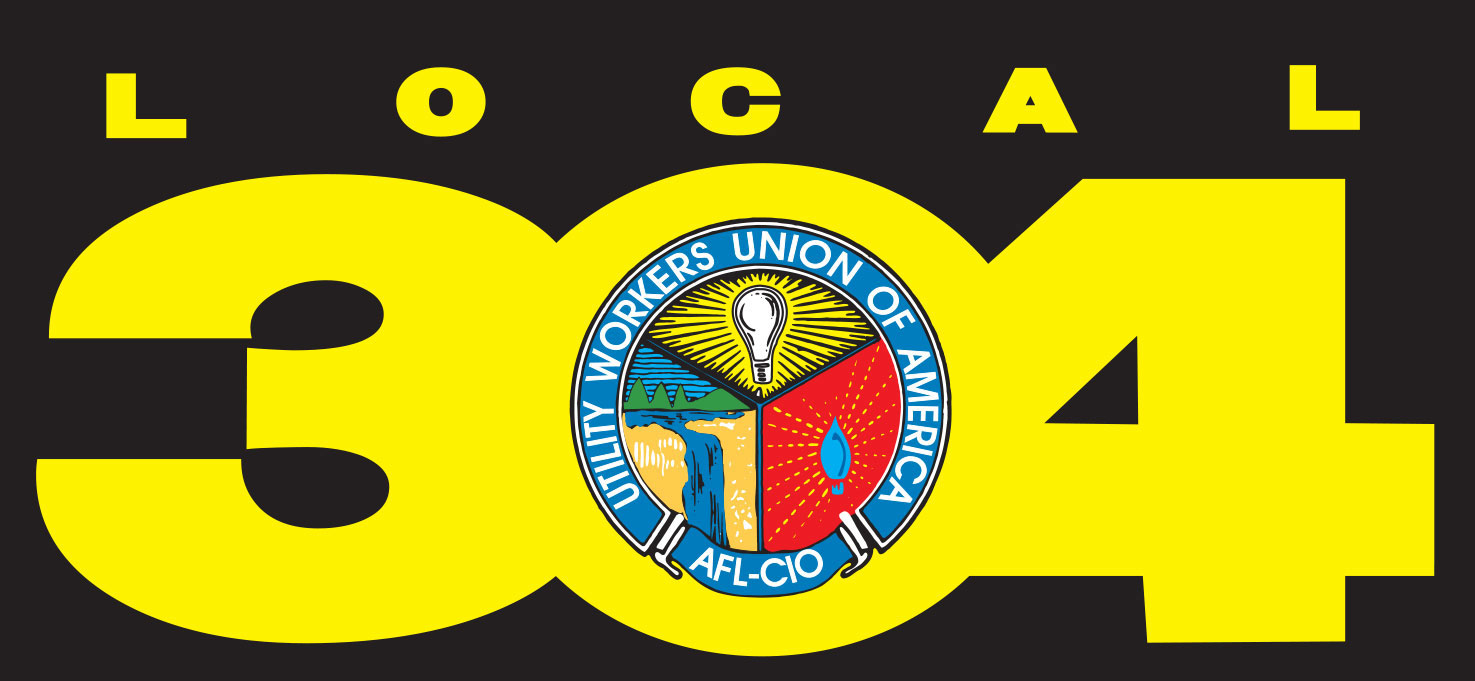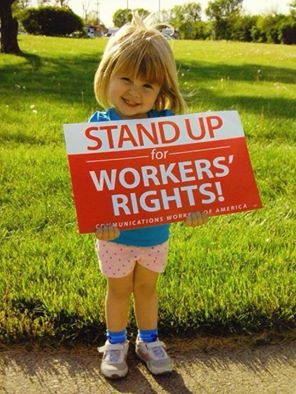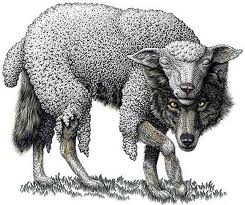Working Without Prosperity
Anyone who works deserves to have some small amount of success, even if that success only consists of the feeling one gets from being a self-supporting and contributing member of society.
West Virginians are in a special circumstance when it comes to work and prosperity. After decades of labor strife, a few coal miners did see a brief period of prosperity from their labor, but with the shrinkage of unionization and the influence of the UMWA, even that small window seems to be closing.
see a brief period of prosperity from their labor, but with the shrinkage of unionization and the influence of the UMWA, even that small window seems to be closing.
Before the industrial revolution and the discovery of our rich coal reserves, West Virginians were mainly farmers, trappers, and hunters. As our country moved deeper into industrialization, those who would seek to exploit our rich coal supply for their own greed moved into our state. They cheated landowners, bought political influence, and set up shop at the head of many hollows to establish mines and start hauling out West Virginia coal.
 West Virginians themselves have not benefited nearly as much as those absentee landlords who owned and operated the mines they worked in. As a matter of fact, West Virginia continues to be one of the poorest states in the nation, an odd happenstance that is in contrast to our rich energy and timber reserves. What workers of this state have reaped are pollution, destruction, and death.
West Virginians themselves have not benefited nearly as much as those absentee landlords who owned and operated the mines they worked in. As a matter of fact, West Virginia continues to be one of the poorest states in the nation, an odd happenstance that is in contrast to our rich energy and timber reserves. What workers of this state have reaped are pollution, destruction, and death.
On December 06, 1907, the Fairmont Coal Company mine in Monongha blew up, creating the worse mine disaster on record in the United States before or since. Official numbers set the count at 361 dead, but this was an era of child labor and the flood of immigrants who worked, undocumented, beside family members who were paid by the short ton for all the coal they loaded each shift. Many old timers claim that the count was far higher, possibly as many as 600, when taking these factors into account.
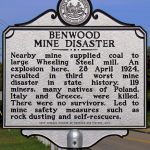 Then there is the 38 miners lost in the Boissevain Mine explosion in 1932, or the Consol #9 mine explosion in Farmington in 1968 that claimed 78 miners(the third such explosion in the mine formerly known as Jamison #9), or Holden, Nellis, Robinson-Ferrell, or Eccles #5 and #6, or the Clinchfield Coal Company’s Compass Mine at Dola, just up Route 20 from Lumberport that killed 22 men. Sago and Upper Big Branch are names of West Virginia mines added to the list of disasters visited upon the people of our state and that have become synonymous with tragedy and loss.
Then there is the 38 miners lost in the Boissevain Mine explosion in 1932, or the Consol #9 mine explosion in Farmington in 1968 that claimed 78 miners(the third such explosion in the mine formerly known as Jamison #9), or Holden, Nellis, Robinson-Ferrell, or Eccles #5 and #6, or the Clinchfield Coal Company’s Compass Mine at Dola, just up Route 20 from Lumberport that killed 22 men. Sago and Upper Big Branch are names of West Virginia mines added to the list of disasters visited upon the people of our state and that have become synonymous with tragedy and loss.
Lest anyone thinking that the plight of West Virginia workers lie only in the dark coal mines of our state, there is also the collapse of a scaffold in a  cooling tower, known as the Willow Island disaster, that killed 51 workers in 1978.
cooling tower, known as the Willow Island disaster, that killed 51 workers in 1978.
In fact, the worst industrial “accident” that ever occurred had nothing to do with coal mining, but happened in the New River Gorge area of West Virginia. This was the Hawks Nest Tunnel tragedy. This project of Union Carbide sought to divert the New River for power production to feed the plant in Alloy, West Virginia. Began at the height of The Great Depression, workers dug the 3 mile tunnel in record time, completing it 10 weeks ahead of schedule. The workers, desperate for gainful employment, either  did not know or understand that they were digging through Silica, a substance that causes silicosis in the lungs and is very damaging and even fatal. Many people have stated that it is impossible to quantify what a workers life is worth, but after years of lawsuits against the tunnel’s contractor, the settlement ranged from $400.00 for an unmarried black man to a $1000.00 for a married white man. In typical West Virginia fashion, the offending company settled $4 Million dollars in lawsuits for a paltry $130,000 dollars. Half of that settlement was claimed by the attorneys representing clients, who also recieved an added secret sum of $20K in the settlement insuring against any further lawsuits, and, on
did not know or understand that they were digging through Silica, a substance that causes silicosis in the lungs and is very damaging and even fatal. Many people have stated that it is impossible to quantify what a workers life is worth, but after years of lawsuits against the tunnel’s contractor, the settlement ranged from $400.00 for an unmarried black man to a $1000.00 for a married white man. In typical West Virginia fashion, the offending company settled $4 Million dollars in lawsuits for a paltry $130,000 dollars. Half of that settlement was claimed by the attorneys representing clients, who also recieved an added secret sum of $20K in the settlement insuring against any further lawsuits, and, on  the demand of the defendants, turned over all plaintiff files to them. In total it has been claimed that almost 500 workers died from exposure to silica dust. This number cannot be certified since tuberculosis was rampant throughout the country at the time and many may have died and been classified as victims of TB. What is known that death by overexposure to silica is a painful and miserable way to die, with one family member claiming that an affected relative actually kicked the bed they were dying in to pieces when in the throes of a fit of spasmodic coughing and gasping for air.
the demand of the defendants, turned over all plaintiff files to them. In total it has been claimed that almost 500 workers died from exposure to silica dust. This number cannot be certified since tuberculosis was rampant throughout the country at the time and many may have died and been classified as victims of TB. What is known that death by overexposure to silica is a painful and miserable way to die, with one family member claiming that an affected relative actually kicked the bed they were dying in to pieces when in the throes of a fit of spasmodic coughing and gasping for air.
Families of West Virginia workers also suffered indirectly, through the loss of the  bread winner and patriarch of the family, but also suffered directly from those who came to our state to rape the land, reap the resouces, and then leave like thieves in the night. Each incident described above represents grieving widows, orphaned children, heartbroken parents, and all the social and economic woes such conditions cause.
bread winner and patriarch of the family, but also suffered directly from those who came to our state to rape the land, reap the resouces, and then leave like thieves in the night. Each incident described above represents grieving widows, orphaned children, heartbroken parents, and all the social and economic woes such conditions cause.
Earthen dams had been simple and easy contructs for coal companies to capture coal wastes. That was until the Buffalo Creek Disaster in 1972. Pittston Coal had a dam at the head of a hollow on Buffalo Creek, WV. In a torrent of several days of  rain, the dam became sodden and soft. On the morning of February 26th, the dam burst. Many residents were still asleep when a wall of muddy coal waste laid waste to everything in it’s path An estimated 132 million gallons of water came roaring down the valley, killing 125 men, women, and children. 1,100 people were injured and 4,000 homes were destroyed. An emergency shelter was set up at the Man High School and survivors combed the wreckage looking for loved ones and lost possessions.
rain, the dam became sodden and soft. On the morning of February 26th, the dam burst. Many residents were still asleep when a wall of muddy coal waste laid waste to everything in it’s path An estimated 132 million gallons of water came roaring down the valley, killing 125 men, women, and children. 1,100 people were injured and 4,000 homes were destroyed. An emergency shelter was set up at the Man High School and survivors combed the wreckage looking for loved ones and lost possessions.
Pittston later claimed the disaster to be an, “act of God”.
 An elderly female resident replied, “I never saw God drive the first slate truck up the holler.”
An elderly female resident replied, “I never saw God drive the first slate truck up the holler.”
Again, in actions so typical of our state, one of the last acts of departing West Virginia Governor Arch Moore was a settlement of the multi-million dollar lawsuits against Pittston for the insulting sum of $1 million dollars.
Stories of the children who survived the disaster recall how anxious and nervous they would get everytime it rained.
 Why is all this worth recounting?
Why is all this worth recounting?
It’s because this is a history of labor in West Virginia. Despite the Mine Wars which shed some light on workers issues. West Virginians have, by and large, been poorly represented by local, state, and federal leaders, and exploited by ruthless corporations. It has been West Virginia workers blood that have purchased many of the country’s safety and health reforms, and it is those reforms that are under attack that we have to continue to fight for everyday.
The UMWA is one of the few unions to have any real success in this area. Those intrepid organizers for the UMWA braved the remote and rugged geography, faced down hired gun thugs, and brought a little social justice to exploited and abused workers in this state.
Another union that helped open the door for West Virginia workers is the Railroad Workers United, who represent railroad workers across North America, and fight the same issues as the rest of us.
It is this lack of representation that should inspire every worker in West Virginia to seek out a union of their choice and actively pursue joining. Unions are the purest forms of democracy in our country because they are ran by the workers, not politicians or absentee corporations. They are also an important source of vital information on issues affecting the industries they represent, giving workers information that is hard, if not impossible, to find anywhere else.
Unions that are organized and active act as checks and balances for people who work for a living and seem to be the ones largely ignored when political parties develop grand platforms promising prosperity and reform, but deliver more of the same year after year. Healthy and active unions hold these people to account for promises made in the heat of campaigns.

 The West Virginia AFL-CIO, with whom we are affiliated with, represents over 575 affiliated unions who fight for all West Virginia workers, whether they are union or not. Unions set the bar for wages, benefits, and working conditions for all workers. UWUA Local 304 would like to wish departing longtime President Kenny Purdue a happy retirement and welcome his replacement, Josh Sword, to the top job at the helm of West Virginia’s labor movement.
The West Virginia AFL-CIO, with whom we are affiliated with, represents over 575 affiliated unions who fight for all West Virginia workers, whether they are union or not. Unions set the bar for wages, benefits, and working conditions for all workers. UWUA Local 304 would like to wish departing longtime President Kenny Purdue a happy retirement and welcome his replacement, Josh Sword, to the top job at the helm of West Virginia’s labor movement.
Josh Sword Kenneth Purdue
(CLICK ON THE LINKS HIGHLIGHTED IN THE ARTICLE FOR MORE INFORMATION)
Why Union Jobs Matter!
There can be no doubt that there were more than the candidates taking center stage in the 2016 Election. Ahead of all the candidates and issues was a force greater than the accumulated individual parts and pieces. That force was anger.
Though almost 50% of Americans stayed home on Election Day, either due to apathy caused by the belief that their choice didn’t matter, or a fundamental feeling that they don’t matter; the rest of the voting public battled openly and advocated loudly for their choice of candidate.
The candidates themselves seemed fatally flawed. One candidate, a product of the ultra-rich elite who rode the back of political maverick and outsider; the other a well known face and political powerhouse whose service in her many posts and positions left a polarizing effect in the minds of the electorate.
To many, even of her own party, Hillary Clinton was the same as having no choice at all. Surprisingly, many in the other party viewed Donald Trump’s candidacy with the same ire and misgivings. Both Presidential hopefuls burned away the long standing colors associated with either party, colors thoroughly bleached out by the white hot anger of the voting public.
So why are Americans so angry?
Of all the issues broached during the 2016, income inequality was the one that resonated the most. The messenger, an old time radical and self described Democratic Socialist, became the lightening rod that energized his adopted party’s message. As the Democratic campaign wore on, Clinton’s rhetoric slowly began to change to the point of her trying to sound like Bernie Sanders.
Regardless of party affiliation, the message of income inequality was one that cut across those hard drawn party lines. The bottom line for almost all voters was that the American public is tired of paying high taxes to a government that seems to takes them for granted.
It’s a fact that unions built middle class America. Unions gave workers a voice, and that voice demanded that the people actually doing the work, while not getting rich, should at least be able to live decent lives and provide adequately for their families.
However, the attack on those wages and benefits that combine to make up a job that makes work pay are relentless. Americans were warned back during Bill Clinton’s Presidency about so called “Free Trade” (NAFTA, CAFTA, …) agreements, that the intent of exporting American economic success would open the door to importing third world wages and working conditions by trying to compete in markets that exploited workers and regimes that did not respect the rules of business, human rights, or the rule of law, in general.
Falling wages and decreased opportunities have hit the middle class hard. In households that are lucky enough to have one breadwinner with a good job, there is a drain on that family’s income in supporting immediate family who can’t find work that provides a decent living.
Forget the toys and hobbies many adults indulge in, more and more it’s taking both parents working full time to earn enough just to survive. Parents are juggling mortgages, bills, tuition, taxes, and everything else that takes cash to plug the holes that seems to always crop up. It seems that everything in our society is geared at squeezing more out of those who contribute the most.
This brings us back to the original problem, income inequality. This is where we see the great chasm that form up the two competing political philosophies.
One side blames social programs and handouts for our ballooning deficit, a situation promoted by the advocates of a progressive agenda.
The other side says corporate welfare and greed is to blame for the woes facing us as a nation.
One side wants to double down on trickle-down economics with yet even more tax breaks for the rich, while the other wants to return us to a system that punishes the successful with an aggressive tax hike. Neither side wants to compromise, so our country limps along in “safe mode” with no end in sight.
Unions are more relevant than ever. We are the frontline that fights for all workers. We fight for wages, working conditions, pensions, and most of all, safety.
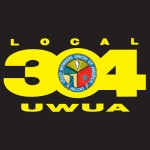 Whether you realize it or not, unions affected your employment at Harrison long before 304 certified as a union in 2010. Before 304, we had UWUA System Local 102 to our north, and Rivesville was union. These facts directly contributed to what wages and benefits would be set for Harrison. Rivesville’s union succumbed to fear of plant closure and a slick campaign that undermined the union and the company was able to bust that union. This left only System Local 102 as the gatekeeper protecting wages and benefits for Harrison. Since 2010, we’ve seen System Local 102 almost reduced to a lineman’s union with the closure of all the plants in their jurisdiction.
Whether you realize it or not, unions affected your employment at Harrison long before 304 certified as a union in 2010. Before 304, we had UWUA System Local 102 to our north, and Rivesville was union. These facts directly contributed to what wages and benefits would be set for Harrison. Rivesville’s union succumbed to fear of plant closure and a slick campaign that undermined the union and the company was able to bust that union. This left only System Local 102 as the gatekeeper protecting wages and benefits for Harrison. Since 2010, we’ve seen System Local 102 almost reduced to a lineman’s union with the closure of all the plants in their jurisdiction.
This is why UNION JOBS MATTER!
304 has been pushed into the position of being the primary defenders of what wages and benefits will be for plants in our geographical area. We’ve had a lot of help, from an embattled System Local 102, our longest and most loyal ally. As we’ve grown, we’ve also found new allies, such as UGWU Local 69 at Dominion and UWUA Local 537 representing employees of West Virginia American Water. We’ve also formed bonds with other unions within our merged company, most notably UWUA Local 270, as well as other trade unions.
304 is able to form these relationships because when we talk to other unions it’s blatantly obvious that we are not alone in the challenges and issues we all face. We have more in common than we do differences, making it clear that we can only face these challenges effectively as a united front and by looking out for each other.
Bargaining power comes from SOLIDARITY!
How many people have YOU, as a union member, helped, or are helping, because of the financial resources of having a good UNION job allows you? How many in your family depend on those wages and benefits you are able to provide them?
This why it is so important that you are UNION!
As a member of the UWUA, you take your place among other serious professionals who are our union Brothers and Sisters, whether they be teachers, firefighters, machinists, laborers, carpenters, pipefitters, ironworkers, steelworkers, electricians, auto workers, painters and plasters, and many others who long ago realized that as workers we have to band together to protect each other from those business forces that seek to make all of us economic wage slaves.
UNION JOBS MATTER!
A Concerned Member
I saw something on our local’s web site that bothered me a little bit. It insinuated that somehow things are getting back to Plant Management from our meetings. Now, I am no one special and really don’t have much to say most of the time, but I couldn’t believe what I was reading.
I attend our monthly meetings when I can and I think of them as a place where I can express myself, with whatever tone or way that I want, without it leaving those four walls. I am not saying we should go to the meetings to yell, scream, and carry on like animals with impunity. I am simply saying that I treat the meetings as a sounding board or “rough draft”. A place where I can get other opinions, feedback, and direction when needed. One day I may even be able to help someone else in this way.
Having said all of that, I usually try to look for the good in everything and I have a hard time believing that someone in our midst is an actual turncoat. I am going to hope that whatever information got out and however it got out was an accident. Maybe someone else over heard something said and it slipped out that way, I am not sure.
I would just like to remind my fellow Union Members that loose lips sink ships. While whatever is said at the meetings is not something we are trying to hide, it could be used against other members when it was not intended to be. Remember some things are “rough drafts” and still need a little fine tuning before it is presented in an official capacity.
I know it is tough to get the information out from the meetings when we don’t see each other outside of work or meetings very often. Somethings that take place at work are hard not to talk about and I get that. I hate to sound like a broken record, but these are the reasons we need our members at our meetings. The members that do attend our meetings can’t give you all the information you are looking for. It is hard to remember what is said and why when we cover so many topics. Also, you never know the intent of someone listening close by or if you got all of the facts right to begin with.
I just want everyone to remember that we are all in this together. Unfortunately, lines have been drawn. While we didn’t draw these lines and hope they will disappear soon, we have to stay together. Remember that true progress takes time and it takes even longer if we don’t stay focused on the task at hand. Our task at hand is to make a better and safer work place for everyone.
